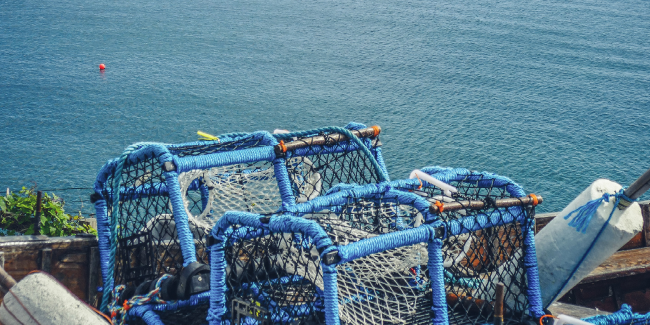The Welsh fishing industry will be no better off unless changes are made to a new proposed law from the UK Government, according to the National Assembly’s Climate Change, Environment and Rural Affairs Committee.

Currently, Wales is entitled to just one percent of the total UK fishing quota under the Fishing Concordat; an agreement used to share out the UK’s fishing quota between England, Scotland, Northern Ireland and Wales.
The UK Fisheries Bill will, if passed, create a common approach to fisheries management across the UK. This is needed as the UK leaves the EU’s Common Fisheries Policy after Brexit.
But the Committee has criticised the failure to address the current unfair distribution of the quota which it says is preventing the Welsh fishing industry from developing.
Industry representatives have long called for a change to the way in which quota is distributed to ensure Wales receives a fairer share.
The Committee received reports of Welsh fisherman having “to stand on the quay, unable to go to sea to catch fish, because they don't have the quotas…and they can only watch vessels from other nations taking those fish, and that surely must be unfair”.
While Brexit and the UK Bill is seen by many as an opportunity to right the wrongs of the current system for allocating quota, the Bill does not address this issue. This is despite the UK Government having promised a move towards a fairer system of quota.
The Committee said the Welsh Government has not done enough to secure improvements in Wales’ quota share. It warns the Welsh Government against complacency and calls on the government to take further, firm action on this issue.
“Leaving the Common Fisheries Policy will provide a unique opportunity for the UK and Wales to rethink their approach to fisheries policy,” said Mike Hedges AM, Chair of the Climate Change, Environment and Rural Affairs Committee.
“In order to take up these opportunities, it is crucial to address Wales’ current quota allocation, which we believe is fundamentally unfair.
“We are deeply disappointed that the UK Government has decided that this issue will not be addressed as the UK leaves the EU. Unless this matter is revisited, the benefits for Welsh fisheries arising from Brexit will be marginal.”
Under the UK Fisheries Bill the UK Government will be making laws affecting areas devolved to Wales, meaning it must ask the National Assembly for permission to do so under what’s called a Legislative Consent Memorandum, or LCM.
The Fisheries Bill is the first Bill arising from Brexit that is subject to the Intergovernmental Agreement, which was struck by the UK and Welsh governments to ensure any laws or frameworks affecting devolved areas are developed collaboratively.
But the Committee found there had been little to no collaboration before the Bill’s introduction. The Welsh Government will also have limited opportunity to try to amend the Bill as it goes through the UK Parliament.
The Committee believes this is unacceptable and it is not clear whether this lack of collaboration was a result of deficiencies in the Intergovernmental Agreement, or a failure of either government to engage.
Members concluded this does not bode well for the successful implementation and continuing operation of the UK Bill’s key provisions, which rely on joint working and inter-governmental collaboration.
Mr Hedges said:
“The Welsh Government should explain why it has not been able to fulfil commitments it has previously given to this Committee in relation to the development of UK common frameworks.
“In particular, it should explain why the UK Bill was not developed in collaboration and why stakeholders were not involved at a sufficiently early stage in its development.”
The Committee recommends the National Assembly gives consent to the UK Fisheries Bill LCM but sets out a number of conditions which should be met beforehand.

